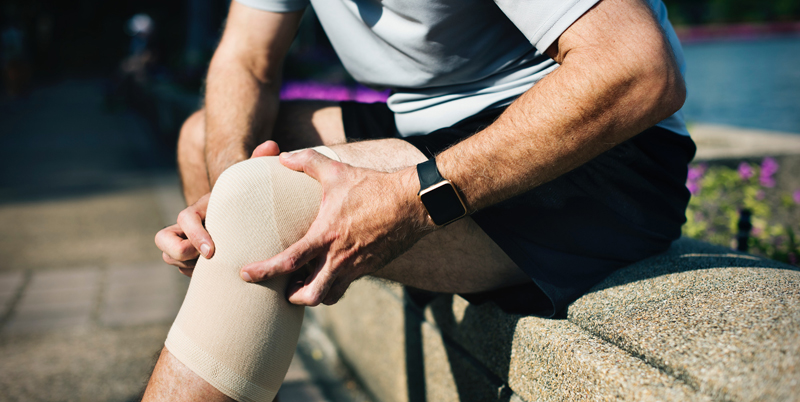by Abigail Frateschi, SPT
ACL Surgery Recovery Timeline & Tips
Prior to ACL reconstruction surgery, it is important to understand the timeline for recovery as well as a few helpful tips to ensure proper healing, including physical therapy.
Although every individual is different, recovering from ACL surgery may take anywhere from six months to a year. Speed of recovery is dependent on the type of surgery, your health prior to surgery, and your willingness to be an active participant in the healing process. It is important to remember that the rehabilitation process begins right after surgery.
Physical Therapy For Recovery From ACL Reconstruction Surgery
ACL reconstruction recovery should be viewed in phases:
Phase I – Weeks 0-2
Based on the traumatic nature of surgery, Phase I is initially characterized by pain, swelling, and excess fluid around the knee. At this time, weight bearing through the surgical leg will be limited so crutches or another assistive device will be used for mobility.
Tips for Phase I:
- Keep the surgical site clean to avoid infection
- Control swelling, pain, and inflammation by elevating the leg and applying cold packs to the affected knee
- Basic strengthening of muscles surrounding the knee joint
- Gain back knee range of motion
- Work on extension by straightening the leg and placing a towel roll under the heel
- Work on flexion by dangling the leg over the edge of the bed
- Don’t overdo it
- Proper fit and gait training with crutches
Phase II – Weeks 2-6
By Phase II, you will be increasing the amount of weight placed into the affected lower extremity and weaning off of any assistive device. With swelling and inflammation under control, you should be working toward regaining full range of motion and progressing with strengthening exercises. During Phase II, you will begin to manage stairs and you may be able to resume driving.
Tips for Phase II:
- Continue with elevation of the leg and cold packs until swelling has subsided
- Perform walking exercises for up to 20-minute intervals and add in elliptical or stationary bicycle for aerobic training
- Progress strengthening exercises with the addition of leg press, squats, and lunges
- Begin balance training
Phase III – Weeks 6-12
As the knee continues to heal and grow strong, you may begin to add in low impact, sport specific activity, with continued strengthening of protective tissues around the knee. By the end of Phase III, you may be able to begin light jogging if your physical therapist thinks it is appropriate at that time.
Tips for Phase III:
- Begin to add in cycling, light jogging, and swimming for aerobic exercise
- Continue to strengthen by adding in sport’s specific training
- Due to the ACL still being in the healing process, be sure to AVOID:
- Impact activities
- Cutting and pivoting motions
Phase IV – Week 12-Month 7
The main focus of Phase IV is to progress sport specific training, as well as continuing on working toward protective strengthening around the knee joint, so you are safe to return to sport or other higher-level physical activity. Although many sport activities are acceptable at this time, it is important to keep in mind that, even though you may feel fully recovered, there is still a risk for re-injury if the knee experiences impact.
Tips for Phase IV:
- Slowly introduce running, jumping, and agility training
- Begin sports drills and conditioning
- Work toward single leg plyometrics
As mentioned before, the type of ACL surgery and your participation with physical therapy and rehab protocol will help determine when you will be safe to return to sport. If you have been fully committed to your rehab schedule and your tissues are fully healed, athletic activity may be resumed around 7 to 9 months post op.
If you are considering ACL reconstruction surgery, physical therapy may be a supportive part of your recovery. The highly skilled physical therapists at Capital Area Physical Therapy will review your case and create a custom plan for PT treatments and techniques. For more information, call our Saratoga office at 518-289-5242 or our Queensbury office at 518-289-5242.






